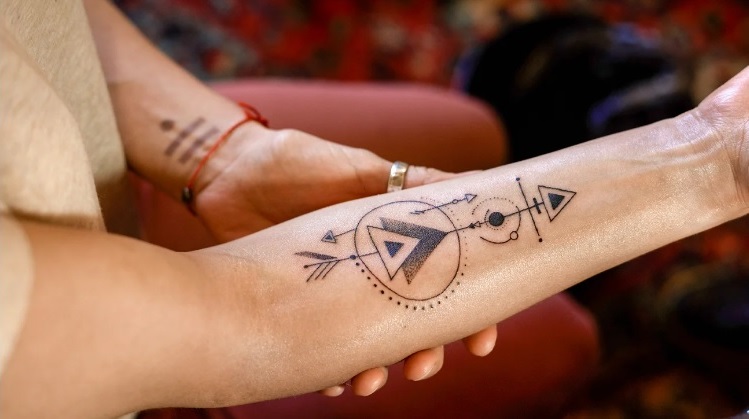
Tattoos have become increasingly more popular over the years, with roughly 30% of Americans having one. This growing prevalence highlights the significance of understanding the effect they can have on the skin.
When getting a tattoo these are some of the biggest things to consider in regards to your skin:
- Location on the body. Make sure you pick an area of the skin where no moles are present. This is because moles can change in size, shape, and color which can be a sign of skin cancer. If there is a tattoo covering them, it can make it much more difficult to see these changes.
- Exposure to the sun. Sun exposure can cause the pigment(s) in a tattoo to break down, fading the appearance over time. Some ways to avoid this include using sunscreen, wearing protective clothing, and avoiding prolonged time in the sun.
- Ink used. Tattoo ink that contains either blue, green, red, or yellow is more likely to cause skin reactions. These reactions can range from mild itching, burning, or swelling to serious infections.
- Skin conditions. Individuals with psoriasis, eczema, and vitiligo with skin conditions are at a higher risk of complications when getting a tattoo. The reason is that the process can inflame the skin and trigger an immune response.
As you can see, considering your skin when getting a tattoo is very important. With appropriate precautions it is possible to ensure both a great looking skin and tattoo. If you are considering getting a tattoo and want to schedule a skin examination prior, contact the skin care experts at Lisa S. Ball, NP today.

